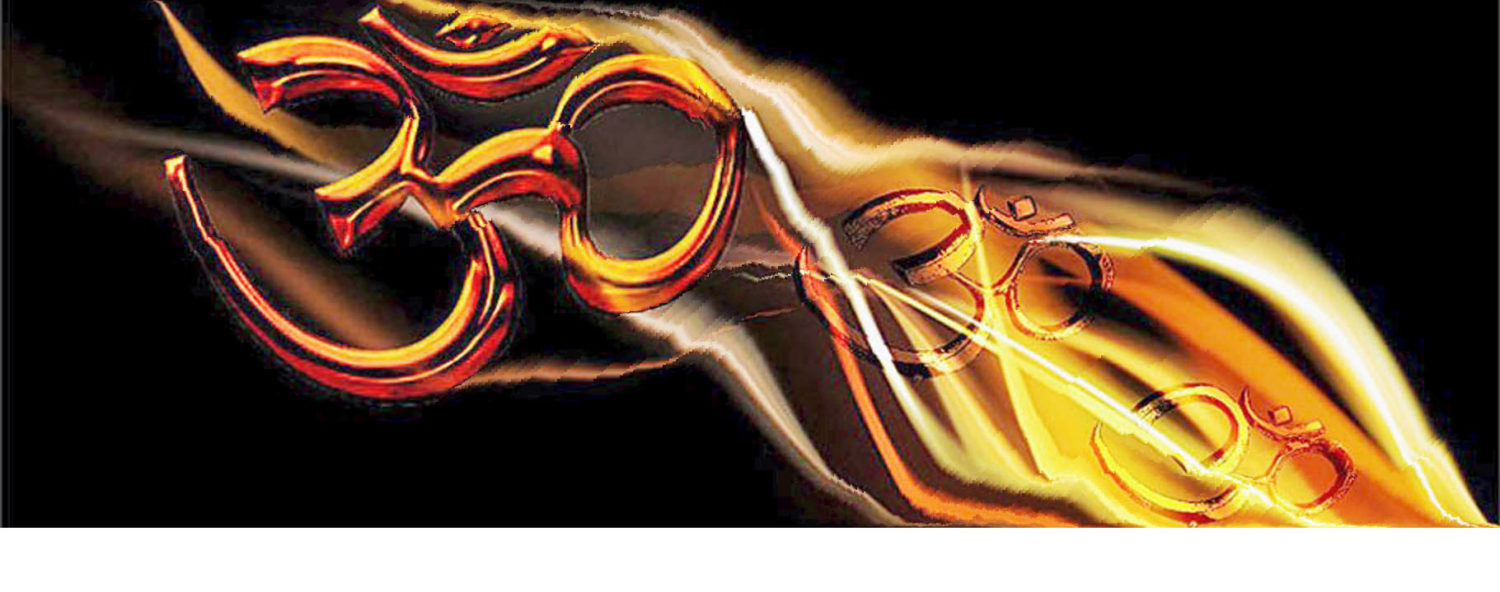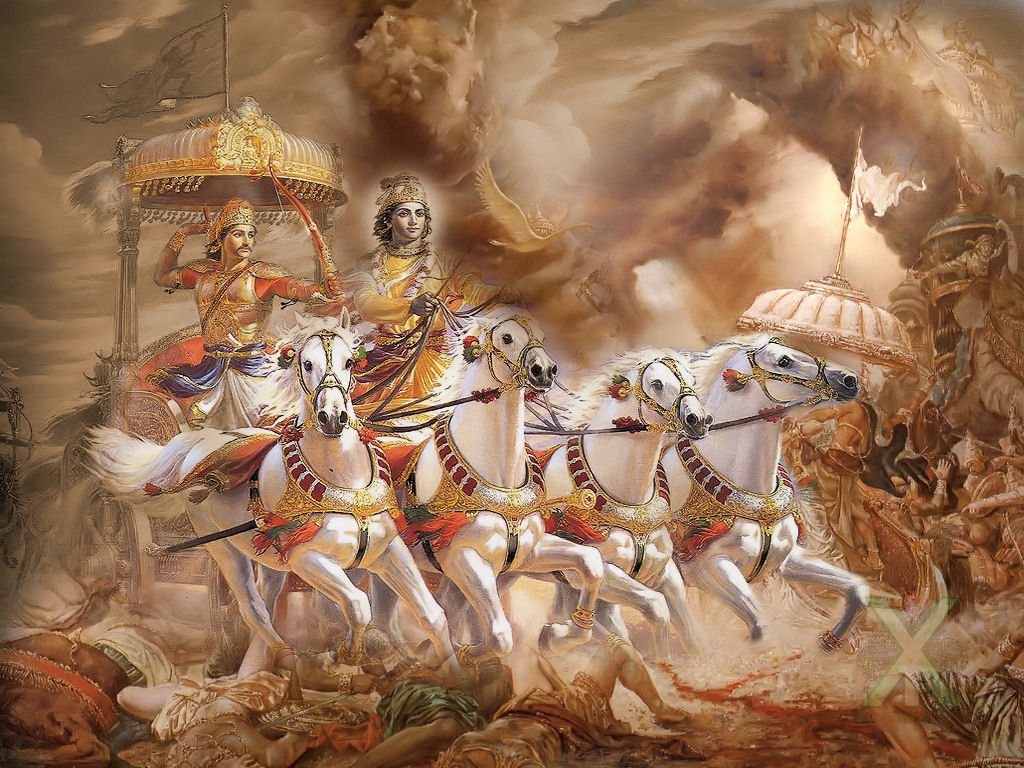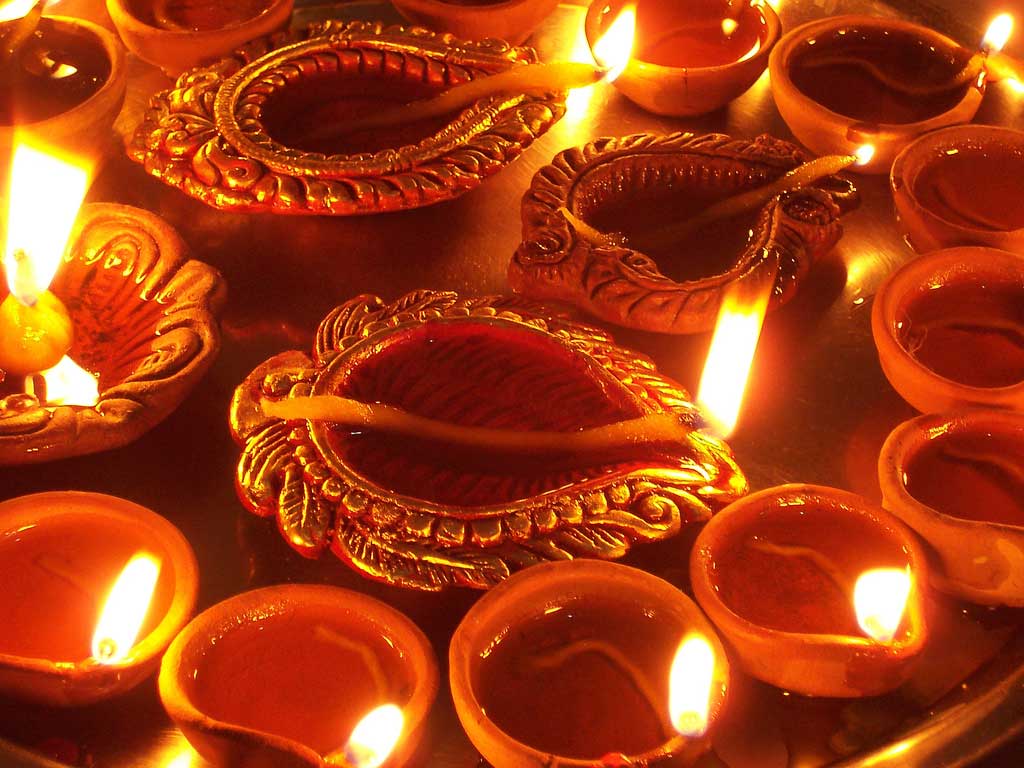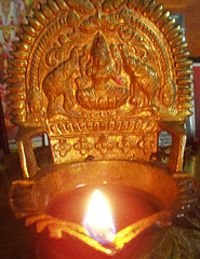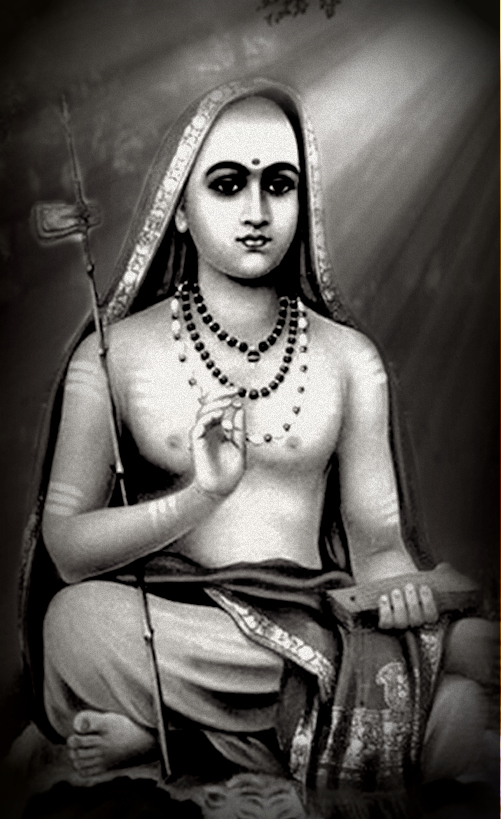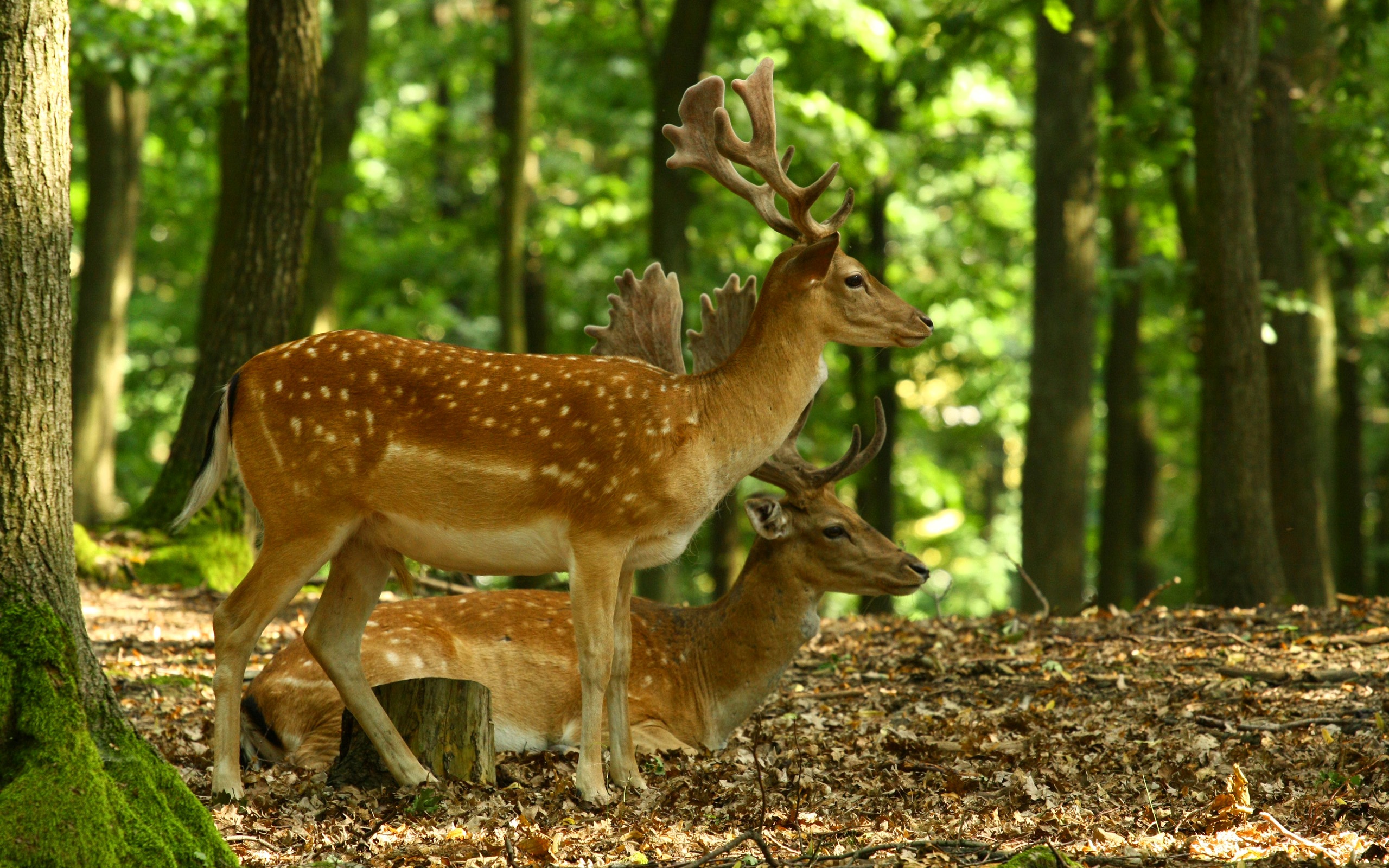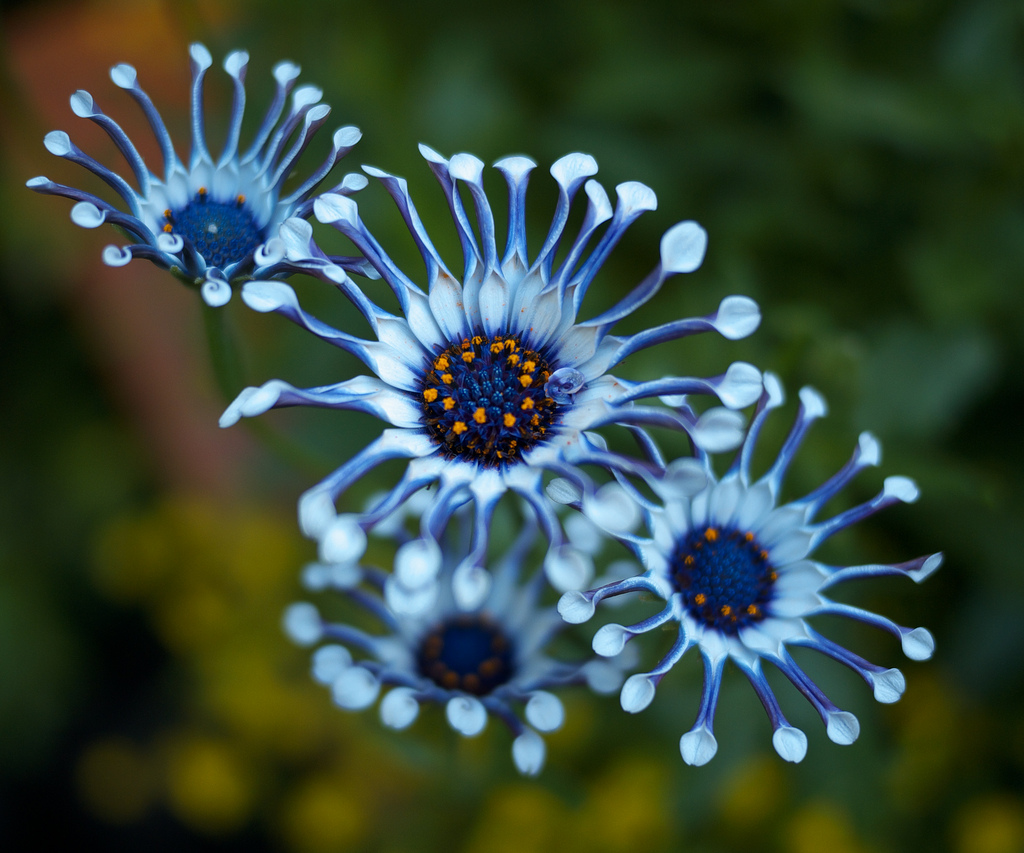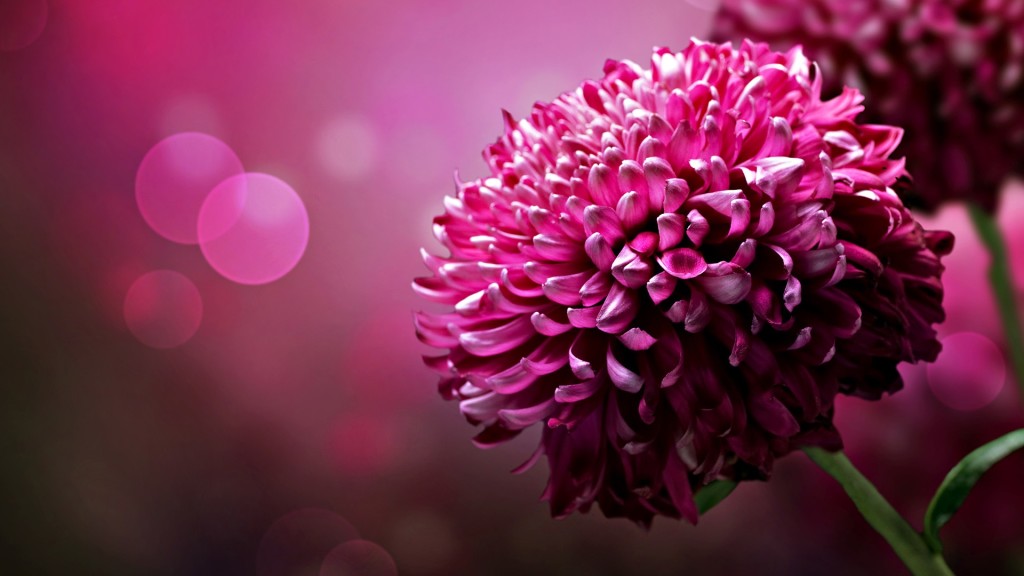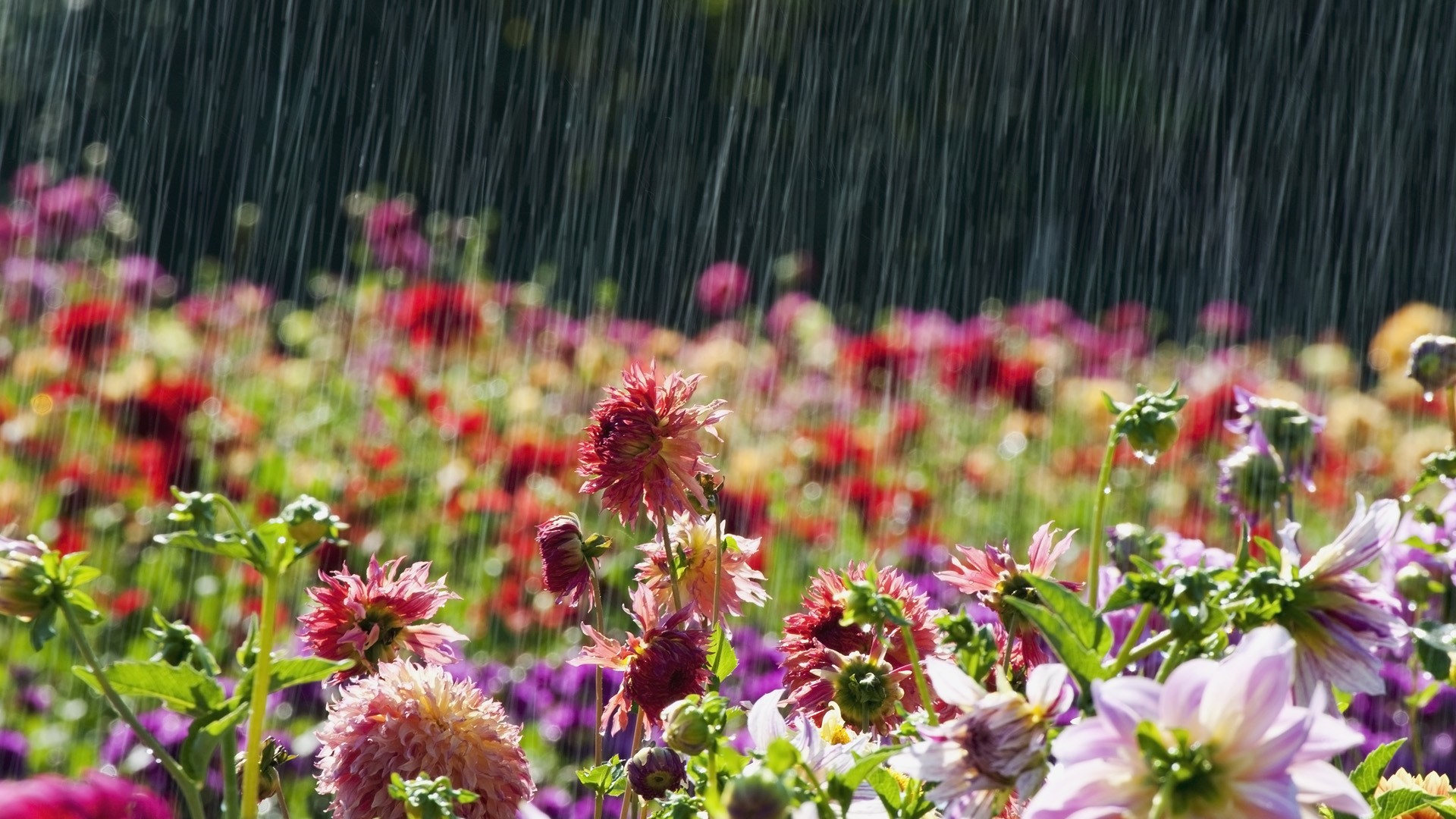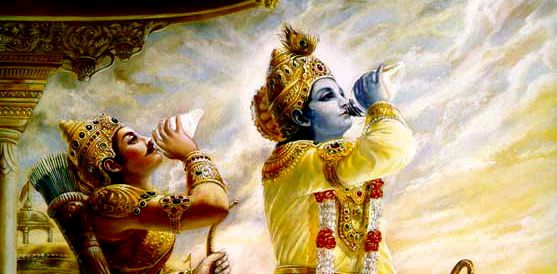Sankhya Yoga – Bhagavad Gita – Chapter 2
In brief, in a nutshell, Bhagavad Gita starts when King Arjuna becomes despondent when he sees that he has to fight his own relatives, uncles, cousins and so on in the war. He puts down his Great Bow and Arrows on the ground, and becomes, grief-stricken, confused and deluded. Then the Grand Lord Krishna, the Divine Incarnation of the Supreme, All-Pervading Self, teaches Arjuna how to live a proper life as a Warrior and face the Conflicts and Paradoxes of Life with success.
Bhagavad Gita is a Great Guide for each and everyone of us. It offers Guidance in two ways, One is How to live our lives efficiently and peacefully, and the Other is How to attain Self-Realization, Immortality, Salvation.
In truth, each one of us, man or woman, is in Arjuna’s condition every day. We have conflicting thoughts, we are confused about what to do in difficult sitations, we are not sure about what is right and what is wrong, we are overcome with misery, and so on. Lord Krishna, by way of guiding King Arjuna, is actually giving us all great knowledge about Life, and guidance about Living our lives righteously, happily and unperturbed, without being agitated and worried about the results. This great Scripture, The Bhagavad Gita, is a Must for everyone who is genuinely seeking help about how to lead a full, healthy and happy life, while seeking to know one’s true Self and attain salvation.
SANKHYA YOGA
Chapter Two of the Bhagavad Gita is called Sankhya Yoga.
In this chapter, first, Sanjaya recounts the condition of Arjuna. Then he proceeds to narrate what happens after that.
In brief, this is what happens in this chapter.
Arjuna is agitated due to delusion of attachment, fear and confusion. He refuses to fight and perform his duty as a Pandava King.
Lord Krishna rebukes Arjuna for his dejection and diffidence, and urges him to fight the war of righteousness. After failing to convince Sri Krishna through his seemingly wise thoughts, Arjuna realizes his helplessness and surrenders himself completely to the Lord, seeking His guidance to get over the conflicts existing in his mind.
Lord Krishna takes pity on Arjuna and proceeds to enlighten Arjuna by various means, offering profound knowledge and practical techniques about Life and Beyond.
1.
Sanjaya Uvaacha:
Tam tathaa kripayaavishtam ashrupoornaakulekshanam;
Visheedantam idam vaakyam uvaacha madhusoodanah.
1.
Sanjaya said:
To him who was thus overcome with pity and who was despondent, with eyes full of tears and agitated, Krishna or Madhusudana (the destroyer of Madhu), spoke these words.
2.
Sri Bhagavaan Uvaacha:
Kutastwaa kashmalam idam vishame samupasthitam;
Anaaryajushtam aswargyam akeertikaram arjuna.
2.
The Blessed Lord said:
From where has this perilous strait come upon you, this dejection which is unworthy of you, disgraceful, and which will close the gates of heaven upon you, Oh Arjuna?
3.
Klaibyam maa sma gamah paartha naitat twayyupapadyate;
Kshudram hridaya daurbalyam tyaktwottishtha parantapa.
3.
Yield not to impotence, Oh Arjuna, son of Pritha! It does not befit you. Cast off this mean weakness of the heart. Stand up, Oh scorcher of foes!
4.
Arjuna Uvaacha:
Katham bheeshmamaham sankhye dronam cha madhusoodana;
Ishubhih pratiyotsyaami poojaarhaavarisoodana.
4.
Arjuna said:
How, Oh Madhusudana, shall I fight in battle with arrows against Bhishma and Drona, who are fit to be worshipped, Oh destroyer of enemies?
5.
Guroon ahatwaa hi mahaanubhaavaan
Shreyo bhoktum bhaikshyam apeeha loke;
Hatwaarthakaamaamstu guroon ihaiva Bhunjeeya bhogaan rudhirapradigdhaan.
5.
Better it is, indeed, in this world to accept alms than to slay the most noble teachers. But if I kill them, even in this world all my enjoyments of wealth and desires will be stained with (their) blood.
6.
Na chaitad vidmah kataran no gareeyo Yadwaa jayema yadi vaa no jayeyuh;
Yaan eva hatwaa na jijeevishaamas
Te’vasthitaah pramukhe dhaartaraashtraah.
6.
I can hardly tell which will be better: that we should conquer them or they should conquer us. Even the sons of Dhritarashtra, after slaying whom we do not wish to live, stand facing us.
7.
Kaarpanyadoshopahataswabhaavah
Pricchaami twaam dharmasammoodha chetaah;
Yacchreyah syaan nishchitam broohi tanme Shishyaste’ham shaadhi maam twaam prapannam.
7.
My heart is overpowered by the taint of pity, my mind is confused as to duty. I ask You: tell me decisively what is good for me. I am Your disciple. Instruct me who has taken refuge in You.
8.
Na hi prapashyaami mamaapanudyaad Yacchokam ucchoshanam indriyaanaam;
Avaapya bhoomaavasapatnam riddham Raajyam suraanaam api chaadhipatyam.
8.
I do not see that it would remove this sorrow that burns up my senses even if I should attain prosperous and unrivalled dominion on earth or lordship over the gods.
9.
Sanjaya Uvaacha:
Evam uktwaa hrisheekesham gudaakeshah parantapah;
Na yotsya iti govindam uktwaa tooshneem babhoova ha.
9.
Sanjaya said:
Having spoken thus to Hrishikesa (Lord of the senses), Arjuna (the conqueror of sleep), the destroyer of foes, said to Krishna: “I will not fight,” and became silent.
10.
Tam uvaacha hrisheekeshah prahasanniva bhaarata;
Senayor ubhayor madhye visheedantam idam vachah.
10.
To him who was despondent in the midst of the two armies, Sri Krishna, as if smiling, O Bharata, spoke these words!
11. Sri Bhagavaan Uvaacha:
Ashochyaan anvashochastwam prajnaavaadaamshcha bhaashase;
Gataasoon agataasoomshcha naanushochanti panditaah.
11.
The Blessed Lord said:
You have grieved for those that should not be grieved for, yet you speak words of wisdom. The wise grieve neither for the living nor for the dead.
12.
Na twevaaham jaatu naasam na twam neme janaadhipaah;
Na chaiva na bhavishyaamah sarve vayam atah param.
12.
Nor at any time indeed was I not, nor these rulers of men, nor verily shall we ever cease to be hereafter.
13.
Dehino’smin yathaa dehe kaumaaram yauvanam jaraa;
Tathaa dehaantara praaptir dheeras tatra na muhyati.
13.
Just as in this body the embodied (soul) passes into childhood, youth and old age, so also does he pass into another body; the firm man does not grieve that.
14.
Maatraasparshaastu kaunteya sheetoshnasukhaduhkhadaah;
Aagamaapaayino’nityaas taamstitikshaswa bhaarata.
14.
The contacts of the senses with the objects, Oh son of Kunti, which cause heat and cold and pleasure and pain, have a beginning and an end; they are impermanent; endure them bravely, Oh Arjuna!
15.
Yam hi na vyathayantyete purusham purusharshabha;
Samaduhkha sukham dheeram so’mritatwaaya kalpate.
15.
That firm man whom surely these afflict not, Oh chief among men, to whom pleasure and pain are the same, is fit for attaining immortality!
16.
Naasato vidyate bhaavo naabhaavo vidyate satah;
Ubhayorapi drishto’ntastwanayos tattwadarshibhih.
16.
The unreal has no being; there is no non-being of the Real; the truth about both has been seen by the knowers of the Truth (or the seers of the Essence).
17.
Avinaashi tu tad viddhi yena sarvam idam tatam;
Vinaasham avyayasyaasya na kashchit kartum arhati.
17.
Know That to be indestructible, by whom all this is pervaded. None can cause the destruction of That, the Imperishable.
18.
Antavanta ime dehaa nityasyoktaah shareerinah;
Anaashino’prameyasya tasmaad yudhyaswa bhaarata.
18.
These bodies of the embodied Self, which is eternal, indestructible and immeasurable, are said to have an end. Therefore, fight, Oh Arjuna!
19.
Ya enam vetti hantaaram yashchainam manyate hatam;
Ubhau tau na vijaaneeto naayam hanti na hanyate.
19.
He who takes the Self to be the slayer and he who thinks He is slain, neither of them knows; He slays not nor is He slain.
20.
Na jaayate mriyate vaa kadaachin
Naayam
bhootwaa bhavitaa vaa na bhooyah;
Ajo nityah shaashwato’yam puraane
Na hanyate hanyamaane shareere.
20.
He is not born nor does He ever die; after having been, He never ceases to be. Unborn, eternal, changeless and ancient, He is not killed when the body is killed.
21.
Vedaavinaashinam nityam ya enam ajam avyayam;
Katham sa purushah paartha kam ghaatayati hanti kam.
21.
Whosoever knows Him to be indestructible, eternal, unborn and inexhaustible, how can that man slay, Oh Arjuna, or cause to be slain?
22.
Vaasaamsi jeernaani yathaa vihaaya Navaani grihnaati naro’paraani;
Tathaa shareeraani vihaaya jeernaa Nyanyaani samyaati navaani dehee.
22.
Just as a man casts off worn-out clothes and puts on new ones, so also the embodied Self casts off worn-out bodies and enters others that are new.
23.
Nainam cchindanti shastraani nainam dahati paavakah;
Na chainam kledayantyaapo na shoshayati maarutah.
23.
Weapons cut It not, fire burns It not, water wets It not, wind dries It not.
24.
Acchedyo’yam adaahyo’yam akledyo’shoshya eva cha;
Nityah sarvagatah sthaanur achalo’yam sanaatanah.
24.
This Self cannot be cut, burnt, made wet nor dried up. It is eternal, all-pervading, stable, ancient and immovable.
25.
Avyakto’yam achintyo’yam avikaaryo’yam uchyate;
Tasmaad evam viditwainam naanushochitum arhasi.
25.
This (Self) is said to be unmanifested, unthinkable and unchangeable. Therefore, knowing This to be such, you should not grieve.
26.
Atha chainam nityajaatam nityam vaa manyase mritam;
Tathaapi twam mahaabaaho naivam shochitum arhasi.
26.
But, even if you think of It as being constantly born and dying, even then, O mighty-armed, you should not grieve!
21
27.
Jaatasya hi dhruvo mrityur dhruvam janma mritasya cha;
Tasmaad aparihaarye’rthe na twam shochitum arhasi.
27.
For, certain is death for the born and certain is birth for the dead; therefore, over the inevitable thou should not grieve.
28.
Avyaktaadeeni bhootaani vyaktamadhyaani bhaarata;
Avyakta nidhanaanyeva tatra kaa paridevanaa.
28. Beings are unmanifested in their beginning, manifested in their middle state, Oh Arjuna, and unmanifested again in their end! What is there to grieve about?
29.
Aashcharyavat pashyati kashchid enam Aashcharyavad vadati tathaiva chaanyah;
Aashcharyavacchainam anyah shrinoti Shrutwaapyenam veda na chaiva kashchit.
29.
One sees This (the Self) as a wonder; another speaks of It as a wonder; another hears of It as a wonder; yet, having heard, none understands It at all.
30.
Dehee nityam avadhyo’yam dehe sarvasya bhaarata;
Tasmaat sarvaani bhootaani na twam shochitum arhasi.
30.
This, the Indweller in the body of everyone, is always indestructible, Oh Arjuna! Therefore, you should not grieve for any creature.
31.
Swadharmam api chaavekshya na vikampitum arhasi;
Dharmyaaddhi yuddhaacchreyo’nyat kshatriyasya na vidyate.
31.
Further, having regard to your own duty, you should not waver, for there is nothing higher for a Kshatriya than a righteous war.
32.
Yadricchayaa chopapannam swargadwaaram apaavritam;
Sukhinah kshatriyaah paartha labhante yuddham eedrisham.
32.
Happy are the Kshatriyas, Oh Arjuna, who are called upon to fight in such a battle that comes of itself as an open door to heaven!
33.
Atha chettwam imam dharmyam samgraamam na karishyasi;
Tatah swadharmam keertim cha hitwaa paapam avaapsyasi.
33.
But, if you will not fight in this righteous war, then, having abandoned your duty and fame, you shall incur sin.
34.
Akeertim chaapi bhootaani kathayishyanti te’vyayaam;
Sambhaavitasya chaakeertir maranaad atirichyate.
34.
People, too, will recount your everlasting dishonour; and to one who has been honoured, dishonour is worse than death.
35. Bhayaad ranaad uparatam mamsyante twaam mahaarathaah; Yeshaam cha twam bahumato bhootwaa yaasyasi laaghavam.
35. The great car-warriors will think that you have withdrawn from the battle through fear; and you will be lightly held by them who have thought much of thee.
36.
Avaachyavaadaamshcha bahoon vadishyanti tavaahitaah;
Nindantastava saamarthyam tato duhkhataram nu kim.
36.
Your enemies also, cavilling at your power, will speak many abusive words. What is more painful than this!
37.
Hato vaa praapsyasi swargam jitwaa vaa bhokshyase maheem;
Tasmaad uttishtha kaunteya yuddhaaya kritanishchayah.
37.
Slain, you will obtain heaven; victorious, you will enjoy the earth; therefore, stand up, Oh son of Kunti, resolved to fight!
38.
Sukhaduhkhe same kritwaa laabhaalaabhau jayaajayau;
Tato yuddhaaya yujyaswa naivam paapamavaapsyasi.
38.
Having made pleasure and pain, gain and loss, victory and defeat the same, you engage in battle for the sake of battle; thus you shall not incur sin.
39.
Eshaa te’bhihitaa saankhye buddhir yoge twimaam shrinu;
Buddhyaa yukto yayaa paartha karma bandham prahaasyasi.
39.
This which has been taught to you, is wisdom concerning Sankhya. Now listen to wisdom concerning Yoga, endowed with which, Oh Arjuna, you shall cast off the bonds of action!
40.
Nehaabhikramanaasho’sti pratyavaayo na vidyate;
Swalpam apyasya dharmasya traayate mahato bhayaat.
40.
In this there is no loss of effort, nor is there any harm (the production of contrary results or transgression). Even a little of this knowledge (even a little practice of this Yoga) protects one from great fear.
41.
Vyavasaayaatmikaa buddhir ekeha kurunandana;
Bahushaakhaa hyanantaashcha buddhayo’vyavasaayinaam.
41.
Here, Oh joy of the Kurus, there is a single one-pointed determination! Many-branched and endless are the thoughts of the irresolute.
42.
Yaam imaam pushpitaam vaacham pravadantyavipashchitah;
Vedavaadarataah paartha naanyad asteeti vaadinah.
42.
Flowery speech is uttered by the unwise, who take pleasure in the eulogising words of the Vedas, Oh Arjuna, saying: “There is nothing else!”
43.
Kaamaatmaanah swargaparaa janmakarmaphalapradaam;
Kriyaavisheshabahulaam bhogaishwaryagatim prati.
43.
Full of desires, having heaven as their goal, they utter speech which promises birth as the reward of one’s actions, and prescribe various specific actions for the attainment of pleasure and power.
44.
Bhogaishwarya prasaktaanaam tayaapahritachetasaam;
Vyavasaayaatmikaa buddhih samaadhau na vidheeyate.
44.
For those who are much attached to pleasure and to power, whose minds are drawn away by such teaching, that determinate faculty is not manifest that is steadily bent on meditation and Samadhi (the state of Superconsciousness).
45.
Traigunyavishayaa vedaa nistraigunyo bhavaarjuna;
Nirdwandwo nityasatwastho niryogakshema aatmavaan.
45.
The Vedas deal with the three attributes (of Nature); be thou above these three attributes, Oh Arjuna! Free yourself from the pairs of opposites and ever remain in the quality of Sattwa (goodness), freed from the thought of acquisition and preservation, and be established in the Self.
Commentary: Guna means attribute or quality. It is substance as well as quality. Nature is made up of three Gunas—Sattwa (purity, light, harmony), Rajas (passion, restlessness, motion), and Tamas (inertia, darkness). The pairs of opposites are pleasure and pain, heat and cold, gain and loss, victory and defeat, honour and dishonour, praise and censure.
46.
Yaavaanartha udapaane sarvatah samplutodake;
Taavaan sarveshu vedeshu braahmanasya vijaanatah.
46.
To the Brahmana who has known the Self, all the Vedas are of as much use as is a reservoir of water in a place where there is a flood.
47.
Karmanyevaadhikaaraste maa phaleshu kadaachana;
Maa karmaphalahetur bhoor maa te sango’stwakarmani.
47.
Your right is to work only, but never with its fruits; let not the fruits of actions be your motive, nor let your attachment be to inaction.
48.
Yogasthah kuru karmaani sangam tyaktwaa dhananjaya;
Siddhyasiddhyoh samo bhootwaa samatwam yoga uchyate.
48.
Perform action, Oh Arjuna, being steadfast in Yoga, abandoning attachment and balanced in success and failure! Evenness of mind is called Yoga.
49.
Doorena hyavaram karma buddhiyogaad dhananjaya; Buddhau sharanamanwiccha kripanaah phalahetavah.
49.
Far lower than the Yoga of wisdom is action, Oh Arjuna! Seek thou refuge in wisdom; wretched are they whose motive is the fruit.
50.
Buddhiyukto jahaateeha ubhe sukrita dushkrite;
Tasmaad yogaaya yujyaswa yogah karmasu kaushalam.
50. Endowed with wisdom (evenness of mind), one casts off in this life both good and evil deeds; therefore, devote yourself to Yoga; Yoga is skill in action.
51.
Karmajam buddhiyuktaa hi phalam tyaktwaa maneeshinah;
Janmabandha vinirmuktaah padam gacchantyanaamayam.
51.
The wise, possessed of knowledge, having abandoned the fruits of their actions, and being freed from the fetters of birth, go to the place which is beyond all evil.
52.
Yadaa te mohakalilam buddhir vyatitarishyati;
Tadaa gantaasi nirvedam shrotavyasya shrutasya cha.
52.
When your intellect crosses beyond the mire of delusion, then you shall attain to indifference as to what has been heard and what has yet to be heard.
53.
Shrutivipratipannaa te yadaa sthaasyati nishchalaa;
Samaadhaavachalaa buddhistadaa yogam avaapsyasi.
53.
When your intellect, perplexed by what you have heard, shall stand immovable and steady in the Self, then you shall attain Self-realisation.
54.Arjuna Uvaacha: Sthitaprajnasya kaa bhaashaa samaadhisthasya keshava;
Sthitadheeh kim prabhaasheta kimaaseeta vrajeta kim.
54. Arjuna said:
What, O Krishna, is the description of him who has steady wisdom and is merged in the Superconscious State? How does one of steady wisdom speak? How does he sit? How does he walk?
55.
Sri Bhagavaan Uvaacha: Prajahaati yadaa kaamaan sarvaan paartha manogataan;
Aatmanyevaatmanaa tushtah sthitaprajnastadochyate.
55.
The Blessed Lord said:
When a man completely casts off, Oh Arjuna, all the desires of the mind and is satisfied in the Self by the Self, then is he said to be one of steady wisdom!
56.
Duhkheshwanudwignamanaah sukheshu vigatasprihah;
Veetaraagabhayakrodhah sthitadheer munir uchyate.
56.
He whose mind is not shaken by adversity, who does not hanker after pleasures, and who is free from attachment, fear and anger, is called a sage of steady wisdom.
57.
Yah sarvatraanabhisnehas tattat praapya shubhaashubham;
Naabhinandati na dweshti tasya prajnaa pratishthitaa.
57.
He who is everywhere without attachment, on meeting with anything good or bad, who neither rejoices nor hates, his wisdom is fixed.
58.
Yadaa samharate chaayam kurmo’ngaaneeva sarvashah;
Indriyaaneendriyaarthebhyas tasya prajnaa pratishthitaa.
58.
When, like the tortoise which withdraws its limbs on all sides, he withdraws his senses from the sense-objects, then his wisdom becomes steady.
59.
Vishayaa vinivartante niraahaarasya dehinah;
Rasavarjam raso’pyasya param drishtwaa nivartate.
59.
The objects of the senses turn away from the abstinent man, leaving the longing (behind); but his longing also turns away on seeing the Supreme.
60.
Yatato hyapi kaunteya purushasya vipashchitah;
Indriyaani pramaatheeni haranti prasabham manah.
60.
The turbulent senses, Oh Arjuna, do violently carry away the mind of a wise man though he be striving (to control them)!
61.
Taani sarvaani samyamya yukta aaseeta matparah;
Vashe hi yasyendriyaani tasya prajnaa pratishthitaa.
61.
Having restrained them all he should sit steadfast, intent on Me; his wisdom is steady whose senses are under control.
62.
Dhyaayato vishayaan pumsah sangas teshupajaayate;
Sangaat sanjaayate kaamah kaamaat krodho’bhijaayate.
62.
When a man thinks of the objects, attachment to them arises; from attachment desire is born; from desire anger arises.
63.
Krodhaad bhavati sammohah sammohaat smriti vibhramah;
Smritibhramshaad buddhinaasho buddhinaashaat pranashyati.
63.
From anger comes delusion; from delusion the loss of memory; from loss of memory the destruction of discrimination; from the destruction of discrimination he perishes.
64.
Raagadwesha viyuktaistu vishayaanindriyaishcharan;
Aatmavashyair vidheyaatmaa prasaadamadhigacchati.
64.
But the self-controlled man, moving amongst objects with the senses under restraint, and free from attraction and repulsion, attains peace.
65.
Prasaade sarvaduhkhaanaam haanir asyopajaayate;
Prasannachetaso hyaashu buddhih paryavatishthate.
65.
In that peace all pains are destroyed, for the intellect of the tranquil-minded soon becomes steady.
66.
Naasti buddhir ayuktasya na chaayuktasya bhaavanaa;
Na chaabhaavayatah shaantir ashaantasya kutah sukham.
66.
There is no knowledge of the Self to the unsteady, and to the unsteady no meditation is possible; and to the un-meditative there can be no peace; and to the man who has no peace, how can there be happiness?
67.
Indriyaanaam hi charataam yanmano’nuvidheeyate;
Tadasya harati prajnaam vaayur naavam ivaambhasi.
67.
For the mind which follows in the wake of the wandering senses, carries away his discrimination as the wind (carries away) a boat on the waters.
68.
Tasmaad yasya mahaabaaho nigriheetaani sarvashah;
Indriyaaneendriyaarthebhyas tasya prajnaa pratishthitaa.
68.
Therefore, Oh mighty-armed Arjuna, his knowledge is steady whose senses are completely restrained from sense-objects!
69.
Yaanishaa sarvabhootaanaam tasyaam jaagarti samyamee;
Yasyaam jaagrati bhootaani saa nishaa pashyato muneh.
69.
That which is night to all beings, then the self-controlled man is awake; when all beings are awake, that is night for the sage who sees.
70.
Aapooryamaanam achalapratishtham Samudram aapah pravishanti yadwat;
Tadwat kaamaa yam pravishanti sarve
Sa shaantim aapnoti na kaamakaami.
70.
He attains peace into whom all desires enter as waters enter the ocean, which, filled from all sides, remains unmoved; but not the man who is full of desires.
71.
Vihaaya kaamaan yah sarvaan pumaamshcharati nihsprihah;
Nirmamo nirahankaarah sa shaantim adhigacchati.
71.
The man attains peace, who, abandoning all desires, moves about without longing, without the sense of mine and without egoism.
72.
Eshaa braahmee sthitih paartha nainaam praapya vimuhyati;
Sthitwaasyaamantakaale’pi brahmanirvaanamricchati.
72.
This is the Brahmic seat (eternal state), Oh son of Pritha! Attaining to this, none is deluded. Being established therein, even at the end of life one attains to oneness with Brahman.
Hari Om Tat Sat
Iti Srimad Bhagavadgeetaasoopanishatsu Brahmavidyaayaam Yogashaastre
Sri Krishnaarjunasamvaade Saankhyayogo Naama Dvitiyo’dhyaayah
Thus in the Upanishads of the glorious Bhagavad Gita, the science of the Eternal,
the scripture of Yoga, the dialogue between Sri Krishna and Arjuna,
ends the second discourse entitled: “The Sankhya Yoga”
